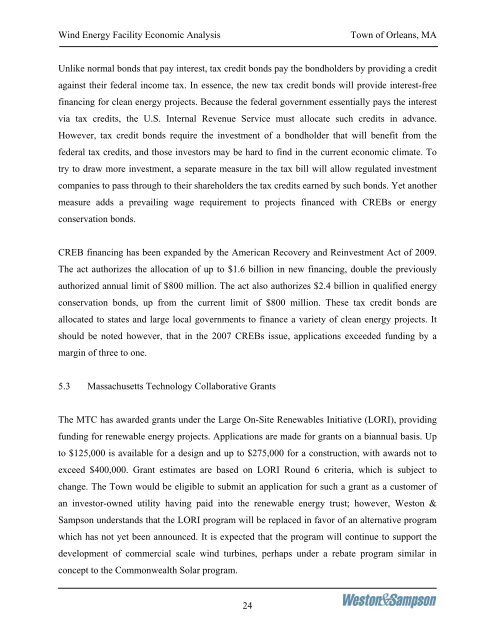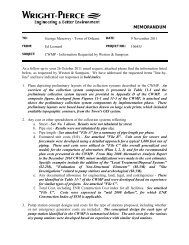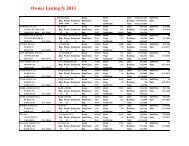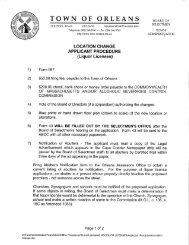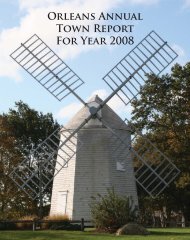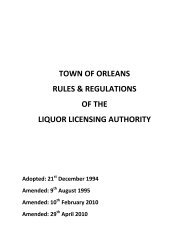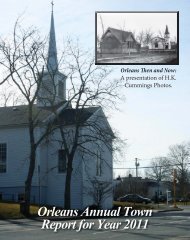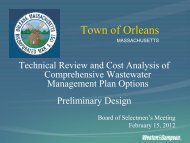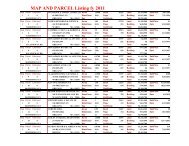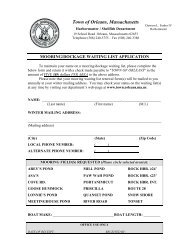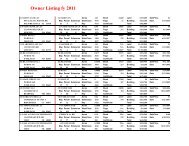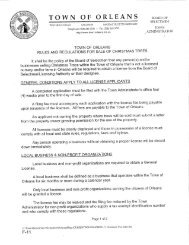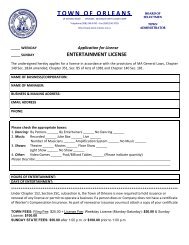Wind Energy Feasibility Study - Town Of Orleans
Wind Energy Feasibility Study - Town Of Orleans
Wind Energy Feasibility Study - Town Of Orleans
You also want an ePaper? Increase the reach of your titles
YUMPU automatically turns print PDFs into web optimized ePapers that Google loves.
<strong>Wind</strong> <strong>Energy</strong> Facility Economic Analysis<strong>Town</strong> of <strong>Orleans</strong>, MAUnlike normal bonds that pay interest, tax credit bonds pay the bondholders by providing a creditagainst their federal income tax. In essence, the new tax credit bonds will provide interest-freefinancing for clean energy projects. Because the federal government essentially pays the interestvia tax credits, the U.S. Internal Revenue Service must allocate such credits in advance.However, tax credit bonds require the investment of a bondholder that will benefit from thefederal tax credits, and those investors may be hard to find in the current economic climate. Totry to draw more investment, a separate measure in the tax bill will allow regulated investmentcompanies to pass through to their shareholders the tax credits earned by such bonds. Yet anothermeasure adds a prevailing wage requirement to projects financed with CREBs or energyconservation bonds.CREB financing has been expanded by the American Recovery and Reinvestment Act of 2009.The act authorizes the allocation of up to $1.6 billion in new financing, double the previouslyauthorized annual limit of $800 million. The act also authorizes $2.4 billion in qualified energyconservation bonds, up from the current limit of $800 million. These tax credit bonds areallocated to states and large local governments to finance a variety of clean energy projects. Itshould be noted however, that in the 2007 CREBs issue, applications exceeded funding by amargin of three to one.5.3 Massachusetts Technology Collaborative GrantsThe MTC has awarded grants under the Large On-Site Renewables Initiative (LORI), providingfunding for renewable energy projects. Applications are made for grants on a biannual basis. Upto $125,000 is available for a design and up to $275,000 for a construction, with awards not toexceed $400,000. Grant estimates are based on LORI Round 6 criteria, which is subject tochange. The <strong>Town</strong> would be eligible to submit an application for such a grant as a customer ofan investor-owned utility having paid into the renewable energy trust; however, Weston &Sampson understands that the LORI program will be replaced in favor of an alternative programwhich has not yet been announced. It is expected that the program will continue to support thedevelopment of commercial scale wind turbines, perhaps under a rebate program similar inconcept to the Commonwealth Solar program.24


